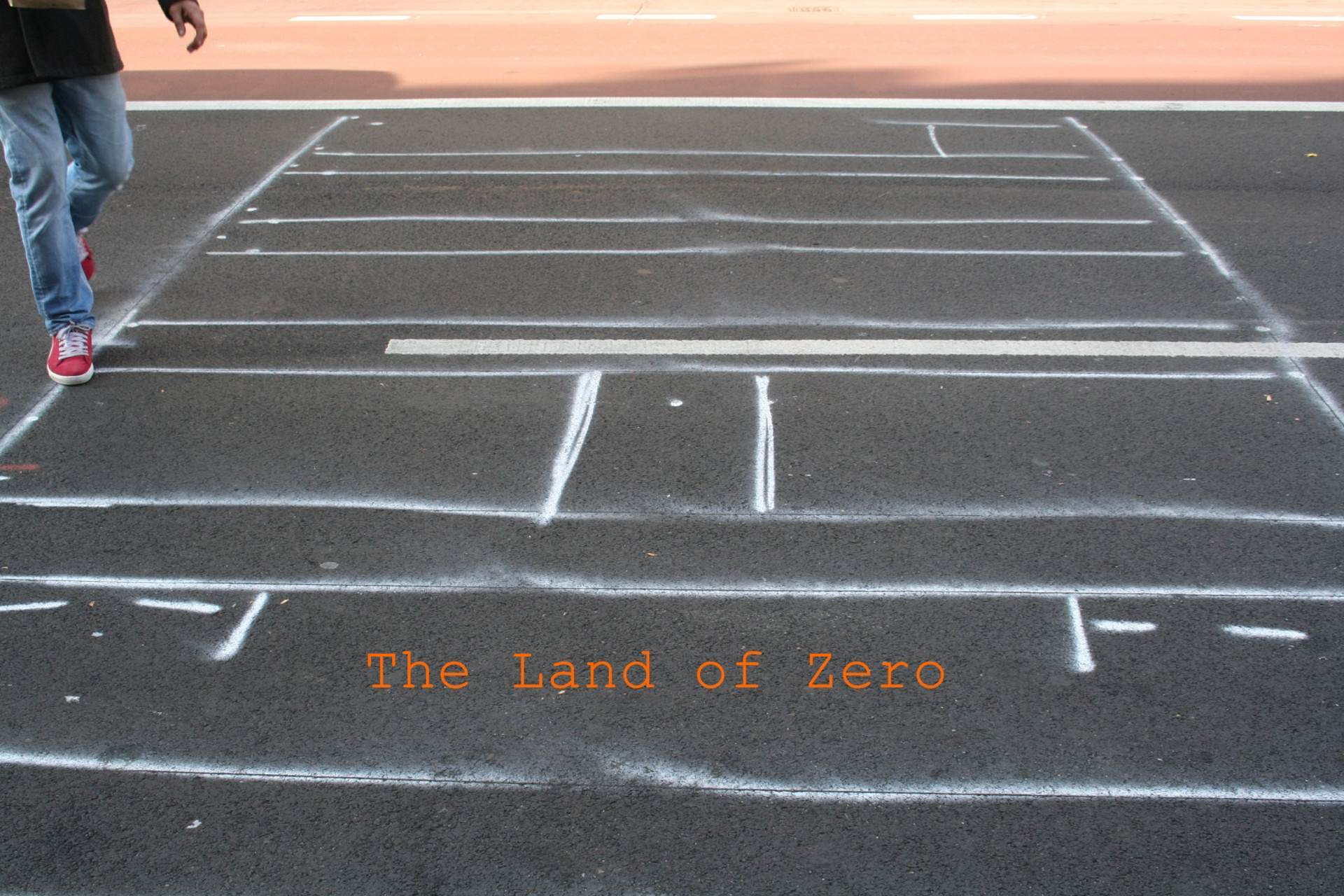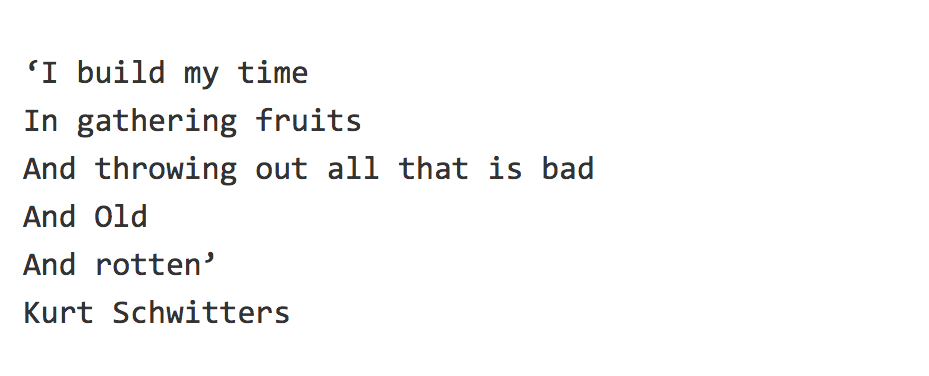Fri 21 November – Sat 6 December, 2014
Seminar: Fri 21 – Sat 22 November, 2014
‘I build my time
In gathering fruits
And throwing out all that is bad
And Old
And rotten’
Kurt Schwitters
The Shakers called America The Land of Zero, a tabula rasa onto which they could build a new society. The conceit of such a landscape allows us to identify a moment of stillness within the ‘amorphous stew’[1], which is the present, an artificial nothingness, a chosen moment within which one can examine new forces temporarily held at bay, through lecture, installation, and discussion. The Land of Zero isa radical school within a school, a hybrid of research within ‘showing’[2], a two-day seminar set in a composite installation in process. It is a place of questioning and examination on a threshold between MA:AP of the Cork College of Art & Design, other practitioners, and the public realm.
The Land of Zero opens a space as a sculptural action for discussion within showing.
This investigative form is achieved throughout the duration of the project with four distinct layers in process.
the establishment of a spatial strategy,
the showing of three artist’s work,
the insertion of the two day seminar within this space frame,
a final layer of works, including MA:AP, curated by Pluck Contemporary Art Gallery, Cork.
Aisling O’Beirn: Proton Dancing (Zagreb 2013) /Angus Woods: Home and Homelessness: Speculations on the Language of Utopian Thought /Anthony Haughey: Moderator /Bill Albertini: “Manhattan Monopoles” /Clive Murphy: site specific installation /Dr. Ed Krčma: Utopia Zones:Some Problems in Art Now (via Joseph Beuys), 2014 /Maud Cotter: An Introduction to The Land of Zero /Pluck Projects: The Land of Zero, a response /Padraig Spillane: Survival Strategies with Pallas Projects/Studios, Dublin and Pluck Projects, Cork /Sigune Hamann: Changing Perception of Images.
Maud Cotter: Initiator/Curator /Pluck Projects: Guest Curator /Claire Power: Administrator
Anthony Haughey: Moderator /Dr. Ed Krčma: Keynote speaker I /Angus Woods: Keynote speaker II
[1]Flusser, Vilém, The Shape of Things, A Philosophy of Design, (London, 1999), p. 22
[2] Ray Monk, Ludwig Wittgenstein, The Duty of Genius, (London, 1991), p.142


